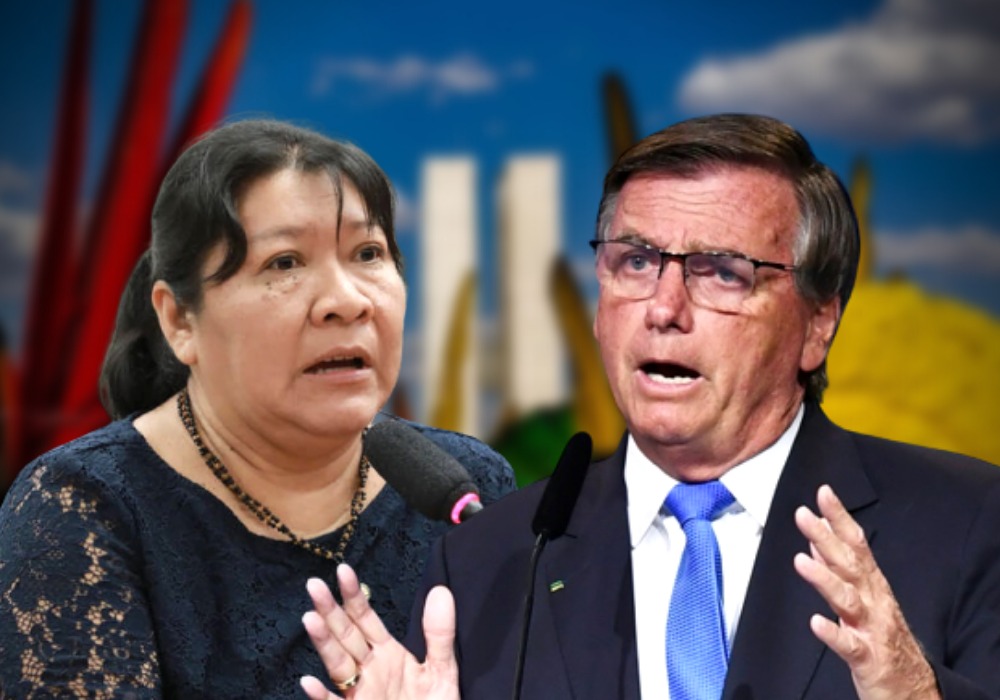‘It’s not just one people,’ says only indigenous federal lawmaker about Bolsonaro’s veto on changing Indian Day
02 de June de 2022

Marcela Leiros – Cenarium Magazine
MANAUS – The first indigenous federal lawmaker in the country, Joenia Wapichana (Sustainability), author of the bill that changes the nomenclature of the “Indian Day” to “Indigenous Peoples’ Day”, criticized, on Thursday, 2, the veto of President Jair Bolsonaro (PL) to the matter. On the rostrum of the House of Representatives, Wapichana emphasized that the current designation to the date does not take into consideration the plurality and diversity of Brazil’s 305 original peoples.
“Indigenous peoples are a collectivity, they live their own culture and have this cultural difference. For a long time now the indigenous peoples have been called ‘indigenous peoples’ because they are not just one people, one ‘Indian’ as they say. We are 305 peoples, with different cultures, different languages. This terminology is not only a political issue, it is a correct terminology, anthropological, and that deserves to be recognized”, emphasized the congresswoman.
Read also: Resigning the date: ‘Indigenous Peoples’ Day’ replaces the infamous ‘Indian Day’
The date is celebrated on April 19th. In the veto, published in the Official Journal (DOU) on Thursday, 2, Bolsonaro claimed that “there is no public interest in the change”, since the Constitution already contains the current nomenclature, so it is already a “term enshrined in the national legal system and culture, with no robust grounds for its revision”.

“Bolsonaro arguing and justifying it as if it were Brazilian culture, as if he were complying with the Constitution, is absurd and totally disrespectful to the native peoples of this country. We have to work to overthrow this veto, because it is a step backwards. That’s why I ask that we pay attention when this veto gets here, that we [the lawmakers] overturn it unanimously”, she asked.
Erasure of diversity
Professor and historian Tamilly Frota Pantoja reinforced to CENARIUM that the date, with its current nomenclature, reinforces the erasure of ethnic and cultural diversity. “The demand is important because April 19 ended up being placed by the State as a date of celebration apart from a generic perspective of what it would be to be indigenous. Placing it as Indian Day reinforces the erasure of ethnic and cultural diversity”, she explains.
The historian even goes beyond the institution of the Day of the Indigenous Peoples. For her, it is necessary to create the “Day of the Conscience of Indigenous Peoples”, to end the idea that the State has a harmonious relationship with the native peoples and reinforce the political awareness of the date.
“It would be important to put the term ‘Day of Resistance of Indigenous Peoples’, to be remembered as a day of resistance.”
Tamilly Frota Pantoja, teacher and historian.

